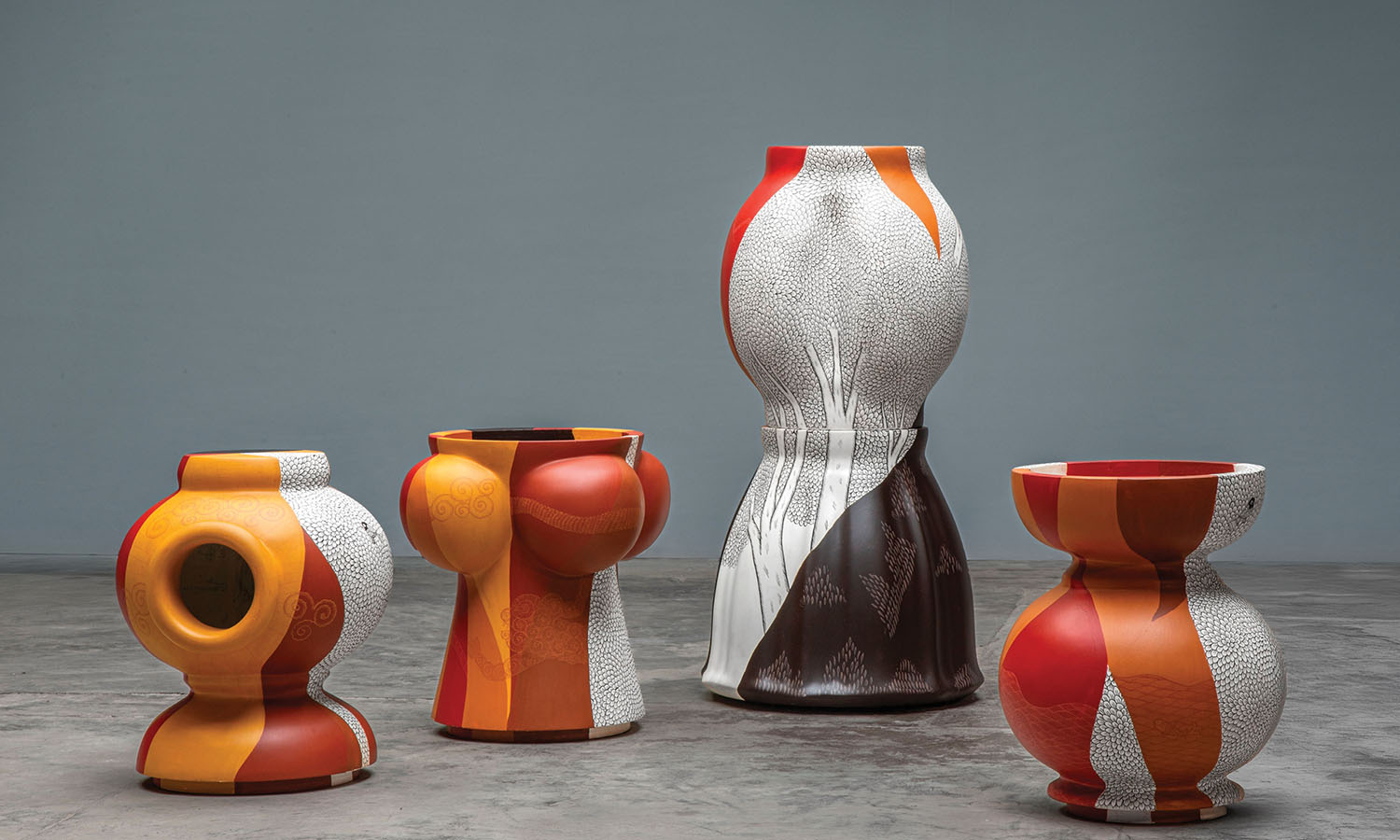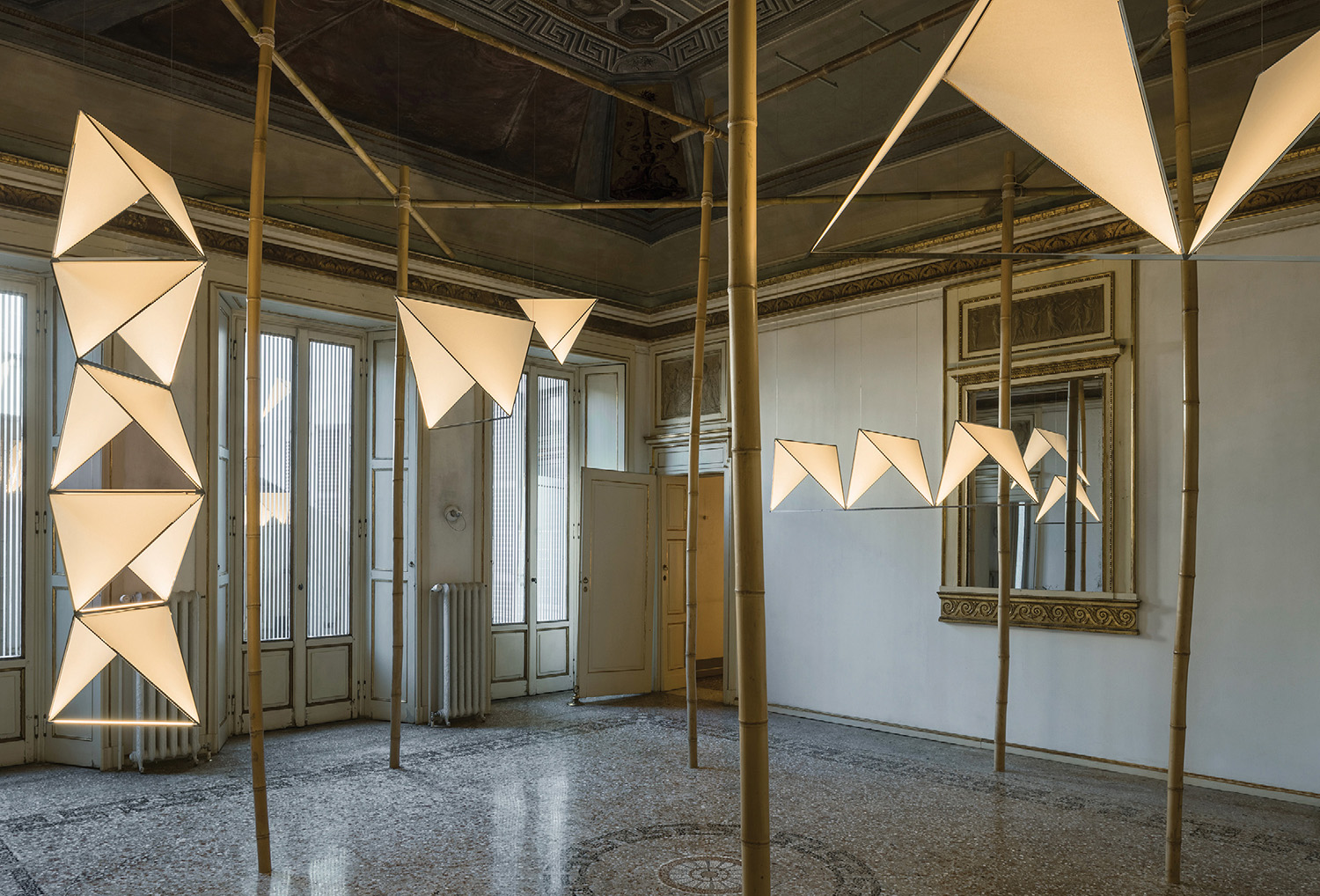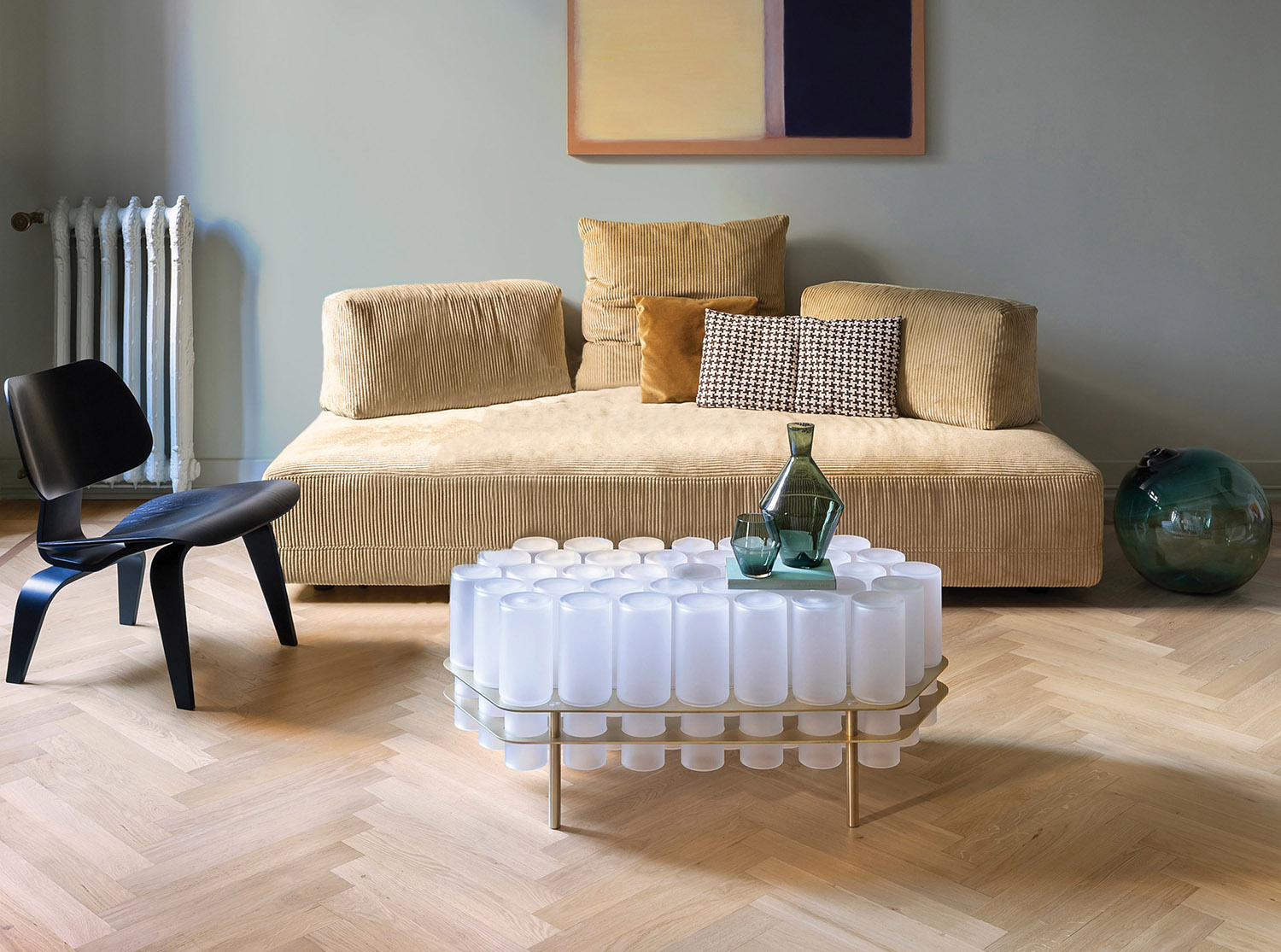10 Questions with… Dechem’s Michaela Tomiskova and Jakub Jandourek
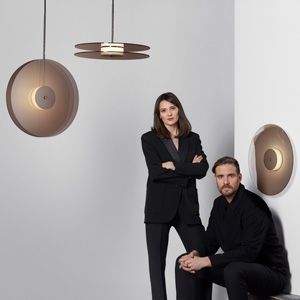 If you’re a designer in the Czech Republic, working with glass is something of a birthright. Dechem, led by husband-and-wife team, Michaela Tomiskova and Jakub Jandourek, has fully embraced the material, making it the basis of their studio’s remarkable work. Playing with shape and color, the duo—largely focused on producing their own collections, such as their latest, For You From Czechoslovakia—has sculpted Bohemian glass into modern lights and objects for Czech manufacturers BOMMA and Kavalier and been called on by international design brands such as Dedon and Ligne Roset. Interior designers around the world have also turned to Dechem to furnish their latest projects with gorgeous glassware. During Designblok 2018, the 20th anniversary of Prague’s annual international design festival, Interior Design sat down with Dechem and talked about their process, their passion for glass, and Czech design.
If you’re a designer in the Czech Republic, working with glass is something of a birthright. Dechem, led by husband-and-wife team, Michaela Tomiskova and Jakub Jandourek, has fully embraced the material, making it the basis of their studio’s remarkable work. Playing with shape and color, the duo—largely focused on producing their own collections, such as their latest, For You From Czechoslovakia—has sculpted Bohemian glass into modern lights and objects for Czech manufacturers BOMMA and Kavalier and been called on by international design brands such as Dedon and Ligne Roset. Interior designers around the world have also turned to Dechem to furnish their latest projects with gorgeous glassware. During Designblok 2018, the 20th anniversary of Prague’s annual international design festival, Interior Design sat down with Dechem and talked about their process, their passion for glass, and Czech design.
Interior Design: What does Dechem mean and why did you choose that name for your studio?
Jakub Jandourek: Dechem means by breath. Originally it was the title of Michaela’s graduation project, Made by Breath. Then we started working together and thinking about a name. This was quite nice. It is very symbolic, and very nice in Czech. To me it works well as a name with all its connotations.
ID: Where did you meet?
Michaela Tomiskova: We met in glass school in Novy Bor. During school we were friends. Then after glass school Jakub stayed in Novy Bor. I went to Prague to study product design at the Academy of Arts, Architecture and Design (UMPRUM). We started doing some small projects together. Then we became partners. We founded Dechem in 2012.

ID: How do you complement one another in your work?
JJ: I’m not a designer. Michaela is the designer. She’s very much into shapes, colors, putting things together, while I’m into production, manufacturing, and technique.
ID: What is your process when conceiving a new piece?
JJ: In the beginning we discuss what the technique, the style and so on will be. Then Michaela does the main design work: the sketches, the 3D visualizations. She’s really good at moving things forward.
MT: But during the process we are consulting together quite often. What I don’t like [she laughs] is when I’m almost done and I say, “Hey Jakub, what do you think? I think it’s cool,” and he says, “I think it’s boring. We have to start again.” It’s what I really hate, because I spend so many hours. And then we have a fight. I’m angry. And then, I know it’s true. And we try to push the idea further.

ID: Why glass? Why do you like working with this material so much?
MT: When I studied glass at school, I totally hated it [they both laugh]. I didn’t like the atmosphere. It was more art. I am more into design. But, Jakub really enjoyed being there and exploring different techniques. He showed me the possibilities of glass. I slowly opened my eyes and started to appreciate this material. At UMPRUM I didn’t work with glass. But for my graduation project I chose to. This is when Jakub and I started working together. I really liked how he was thinking and talking about glass. Now I really like this material.
ID: What are some current or upcoming projects?
MT: We are almost done with a huge light sculpture for a private residence. It is almost 2.5 meters. It is made from rolled glass. We used a 100-year-old machine to roll hot glass into sheets, which are suspended. That’s the sculpture.
Also, BOMMA just launched two collections by us at Light + Build in Frankfurt, including Umbra. The table and wall versions of this collection are being presented for the first time during Designblok. And, we are currently preparing new designs for AQForm, a Polish company that is now part of Delta Light. We made our first collection for them about two years ago. After Designblok we will start to prepare this new collection.
JJ: Lately we have quite a lot of orders for some interiors based on our For You From Czechoslovakia collection, which is inspired by 20th-century Czechoslovak architecture. Nostra restaurant in Reykjavik, as well as some residential projects in France, the U.S., and Great Britain. Also companies contact us to incorporate our products into their styling or for their showrooms, like Pianca or Dedon, which bought some of our pieces for their U.S. showroom. Ligne Roset has included some of our vases in their collection. And in Prague, we just furnished the lobby of the headquarters of a large auditing company with about 50 lights.
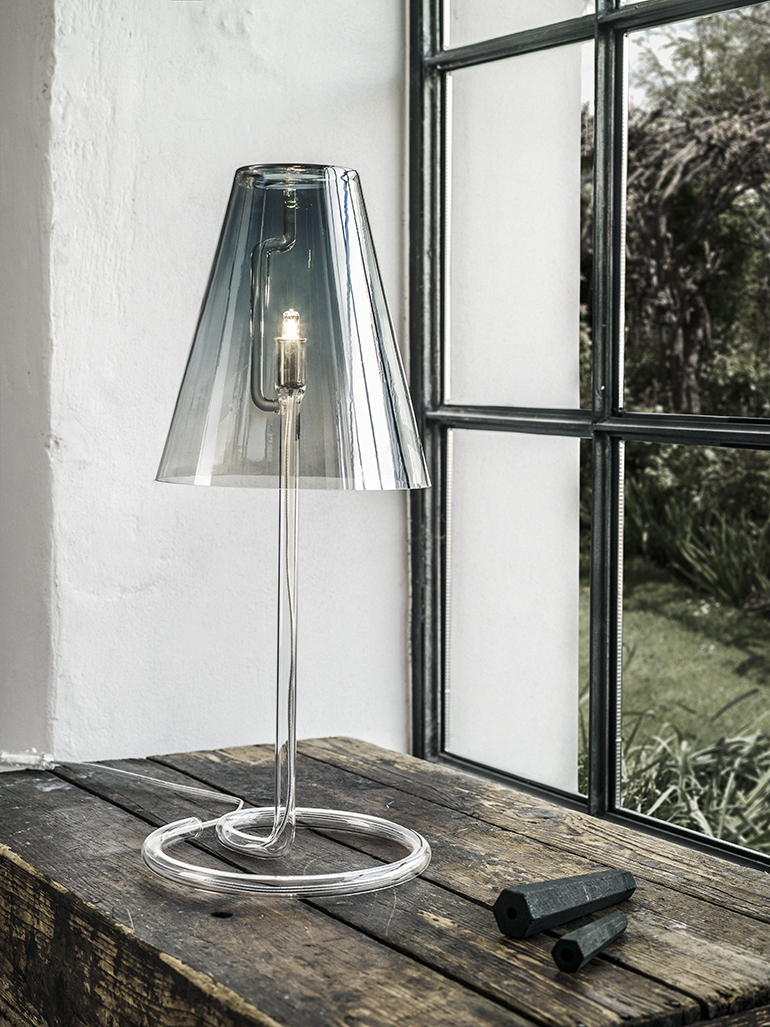
ID: What does glass bring to interiors?
JJ: It is sand, minerals, stone, transformed earth. That’s what it brings. The quality of reshaped stone. Glass is the most ancient artificial material in human history. It is transformed sand you can have at home, in different colors and shapes.
ID: What stands out about Czech design?
MT: Our friends, the top Czech designers, like Jan & Henry, Jakub Berdych, Lucie Koldova, they just love to work. They love their job. They have passion for it. They want to make good products and present them really well.
JJ: The same applies to many of today’s young up-and-coming designers. They are persistent and passionate. Also, the Czech Republic has a particular tradition and heritage in the design of everyday objects—since the Austrian empire and during the communist period. We were self-sufficient. There were people designing and manufacturing, small companies, and small workshops. So we have this great background.

ID: What does the current Czech design scene look like?
JJ: If you consider the size of Czech Republic and the economic background, it is good. But still, if you compare it to some western countries, something quite big is happening these days.
MT: You can see it every year at the fairs, in Milan, in Paris, so many Czech companies are there with really strong presentations. Every year it is better and better. And it is nice for us to present something made in the Czech Republic. Good work. Good quality. Everything we produce is made here. It is the best way that we can represent our country in a positive light.
ID: Do you have a dream commission?
MT: I like how the work comes to us. I like the freedom that we can choose if we want to collaborate or not. This is really important for both of us. We like a lot of brands like Flos, for example. It could be nice to work with them, but we are satisfied like it is. Working on our own collections. And it’s great this feeling. I am really happy that we have it. We can always go to Novy Bor and do some prototyping. We recently bought a small piece of land there, we’re now building a small house. We want to spend more time there, to be in nature more. This glass community, that’s what we like.
